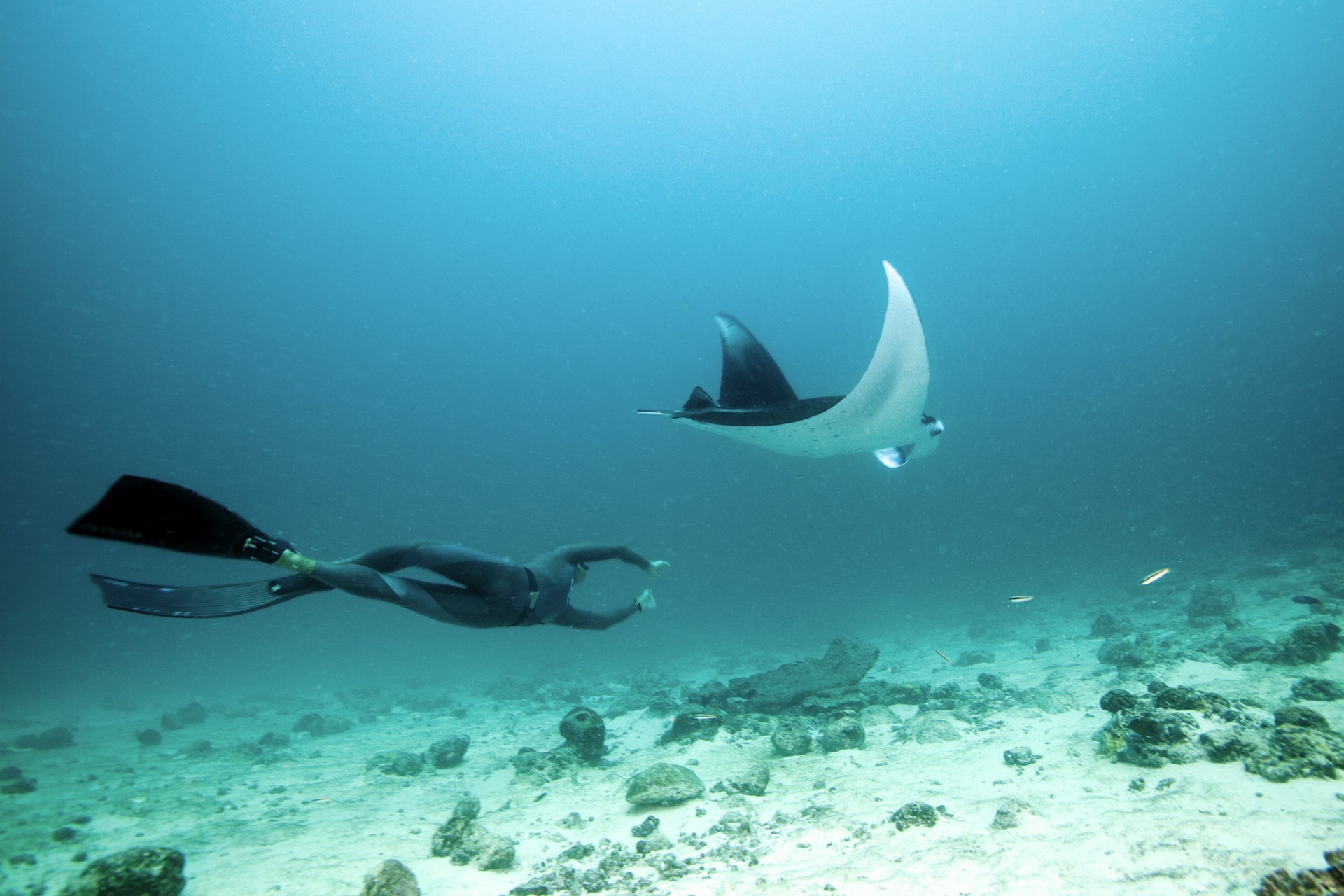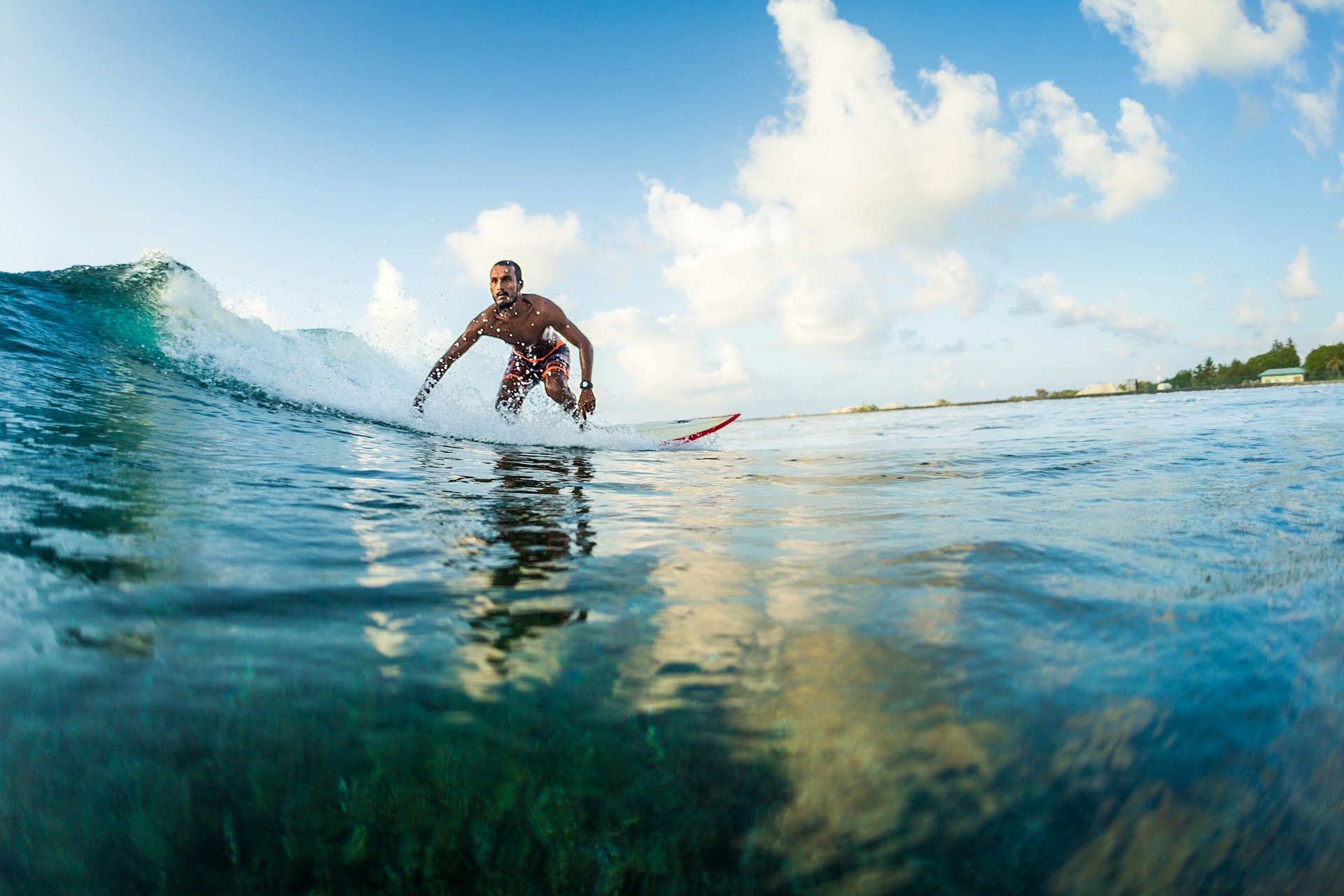First things first: there’s not really any such thing as a bad time to visit the Maldives. Whether your holiday to the Indian Ocean’s pièce de résistance is a romantic escape, a getaway with friends or a solo adventure, you’re in for an incredible experience.
That said, it’s worth spending a moment researching the advantages of visiting during specific times, maybe to optimize amazing wildlife sightings or find the best snorkeling conditions. Our seasonal guide to the Maldives will ensure you don’t pick the wrong month for a relaxing honeymoon or miss out on the underwater experience of your dreams.
All that’s left for you to decide is which island is right for you. Just a word of warning – with 1192 to choose from, this is easier said than done…
January to March is the best time for fantastic weather
If warm weather and sun-drenched beaches are a priority, you can’t go wrong with a visit to the Maldives in January, February or March. These months fall outside the monsoon period and are typically when the islands get the most hours of sun. Full disclosure – monsoon season tails off in late November but this is when prices start to creep up due to the demand for winter sun holidays, while rates also get higher closer to Christmas.
Another reason this is an excellent time to visit is because this is when the water is at its clearest and calmest – the snorkeling and diving are fantastic. Atolls such as the Raa Atoll, famous for its diverse marine life and spectacular coral formations, are great destinations to check out at this time of year. But if you’re a beach bum who prefers to stay close to their sun lounger, you’re also in luck – on average you can expect around nine hours of sunshine during these months, while humidity levels remain low and average temperatures hover around 29°C (84°F).
April to August is a great time to bag a bargain
Late April is when the first showers of the year start to appear but April to August is still a wonderful time to book a holiday to the Maldives, simply because it’s one of the cheapest times to visit. Even with the higher chance of rainfall, you’ll still enjoy between seven and eight hours of sunshine every day.
It’s worth bearing in mind that if you’re a keen snorkeler or scuba diver, water visibility is often reduced during these months (although the average sea temperature at this time – a bath-warm 30°C (86°F) – means it’s still a fantastic time for a dip in the ocean). This is an excellent season for travelers with a limited budget – airfares and resort rates are significantly lower and resorts are less crowded. Finding a spot at the bar from which to soak up those gorgeous sunset views won’t be a problem and complimentary room upgrades are more likely.
Don’t forget that the Maldives isn’t just about the great outdoors, either: resorts offer a staggering range of activities (most of which don’t depend on the weather) and there are often more on offer between April and August, ranging from cookery masterclasses to art workshops. Fancy embracing paint power? Cora Cora Maldives, on the Raa Atoll, is a great option and runs a series of art classes with a local artist who daubed his beautiful designs onto the resort’s villas.
June and July are when to hang ten in the Maldives
June and July are ideal months to try surfing in the Maldives because this is when the waves are at their highest. A growing number of resorts now have surf schools, although one of our favorite spots is Laamu Atoll. This is where you’ll find the Six Senses Laamu, which was one of the first resorts in the Maldives with a surf school. Generally, the northern and central atolls are the best destinations for surfing in the Maldives.
July is the perfect time to join in with Independence Day celebrations
The Maldives’ Independence Day is on July 26 and parades, parties and cultural performances transform this island nation as everyone celebrates together, with some of the most colorful celebrations held at the country’s resorts. Typically, there’s a wider range of cultural activities for guests to enjoy around this time, whether it’s masterclasses led by traditional lacquer artists or lessons in leaf-folding, which involves creating elaborate sculptures from palm leaves. Trust us – your average piece of Japanese origami will look rather plain after this.
Independence Day is also a great time to sample local cuisine, as many resorts will roll out special celebratory menus. Highlights will often include delicious cakes adorned with the colors of the Maldivian flag (the cutting of this cake is usually one of the most important events) and there will be endless opportunities to sample traditional dishes such as saagu bondai bai, a delicious sago dessert made with coconut milk, rose water and cardamom.

October and November are brilliant months for wildlife spotting
Yes, there’s a higher risk of rainfall and thunderstorms during these months, but they’re generally short, sharp downpours. You can expect between six and eight hours of sun a day, while the mercury will hover around 27°C (80°F). The major advantage to visiting at this time of year is the wildlife-spotting opportunities. Whale sharks and manta rays are regularly sighted as they feast on plankton. For some of the best sightings head to the Raa Atoll – this is a prime manta-spotting territory, and the northern tip’s proximity to the Baa Atoll (a UNESCO Biosphere Reserve) ramps up the wow factor.
If seeing the region’s marine life is a priority, stay at a resort that operates conservation programs or other schemes designed with wildlife in mind. The InterContinental Maldives Maamunagau Resort, for example, is regarded as one of the best places to see manta rays. But don’t just take our word for it – this is where UK-based charity The Manta Trust chose to set up its first base in the Maldives, and visitors can sign up for a wide range of manta-themed activities, including manta-spotting snorkeling excursions and presentations about the charity’s work.
December means plenty of opportunities for festive fun
Yes, December is one of the more expensive times to visit the Maldives, but we’re firm believers this period should never be ruled out. It’s a fantastic time to spot marine life and the region’s resorts go all out when it comes to festive fun. At the Hard Rock Maldives and the St. Regis Maldives Vommuli Resort, for example, Santa typically makes regular visits on his jet-ski, and almost every resort will drape its palm trees with fairy lights.
One way to offset the higher prices is by opting for a resort that can be reached by speedboat (the cost of which is normally included in the room rate), rather than a more expensive seaplane journey. Weather-wise, expect around seven hours of sunshine a day and daytime temperatures of around 29°C (84°F). Sea temperatures are slightly cooler, but still hover around a perfectly pleasant 20°C (68°F) – the ideal temperature for a post-Christmas-dinner dip in the ocean, we reckon.
